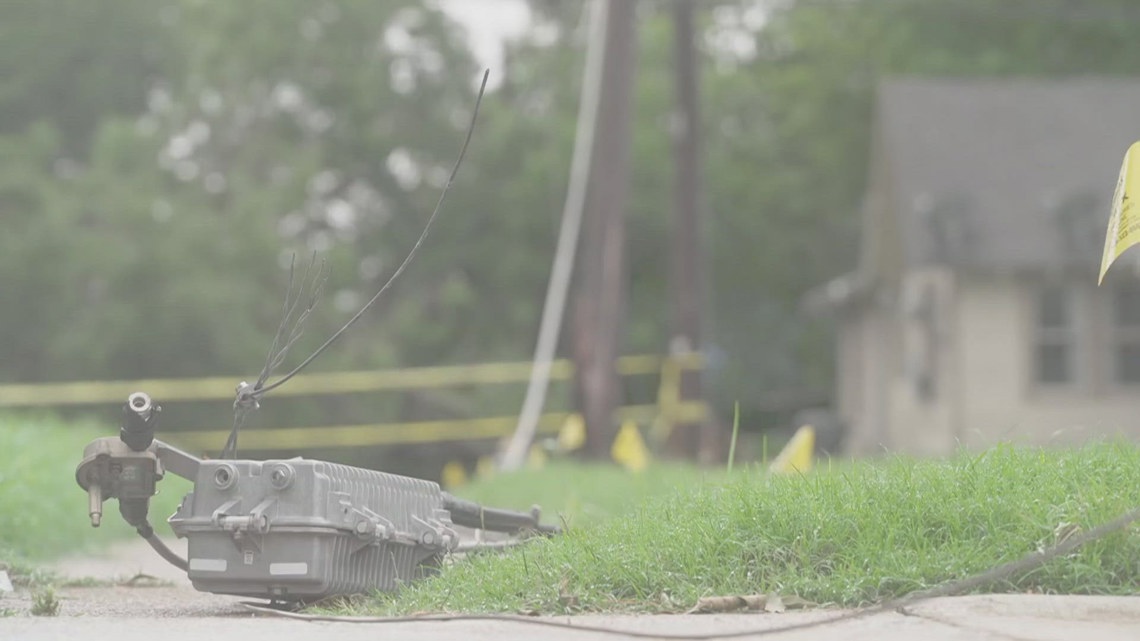
At its peak after the May 28 storm, Oncor says more than 650,000 customers were without power in North Texas.
DALLAS — Oncor says the May 28 storm that left thousands without power, many for several days, was among the worst in its 112-year history in terms of outages. Now, a Dallas City Council member is calling for Oncor to explain why it took so long to restore power in some areas after the storm.
At its peak, Oncor says more than 650,000 customers were without power in North Texas.
“From an outage perspective, this was the second-worst storm in our 112-year history and the top damaging storm to hit Dallas County,” Oncor spokesman Greg Cruise told WFAA. “We did experience an issue with our notification system. We actively worked to correct it and offered alternative options for customers to report outages and get more information. We understand this caused some confusion for our customers at an already stressful time. Our goal is to always keep our customers informed about the status of their outage.”
Dallas City Council member Paula Blackmon, who represents hard-hit east Dallas, called on Oncor to “take immediate steps to address any systemic issues and improve communication with residents and the city of Dallas. One example is to share power outage locations with the city of Dallas so city resources can be effectively deployed to reduce the impact to our resident’s quality of life.”
“Despite the severity of the situation, power restoration efforts were delayed in several neighborhoods throughout District 9 and East Dallas as a whole,” Blackmon wrote. “Residents reported difficulties in accessing accurate information regarding power-outage status and/or restoration timelines from Oncor communication systems.”
Blackmon requested Oncor conduct an investigation into the reasons behind the delayed power restoration.
Oncor said in a statement to WFAA that subsequent storms the same week caused additional damage and delays in restoring power.
“Those storms caused additional damage, outages and created flooding, which caused additional delays. Harder-hit areas included the communities of North Dallas, East Dallas and Mesquite. In many of these communities, the outages were among the most complex and time-consuming and required the reconstruction of distribution equipment and replacement of utility poles and transformers,” Cruise said. “Throughout the storm, we communicated with city staff and council members and provided updates, as they were available. We recognize that any outage is a hardship, especially when it extends over several days. We are grateful for our customers, the selfless work of our dedicated employees and the assistance of our mutual aid partners.”
After the May 28 storm, Cruise says storms Dec. 5, 2013, and June 9, 2019,
Cruise said Oncor had personnel and equipment pre-positioned before the storm and began damage assessment and restoration for critical infrastructure afterward.
During the outages, Oncor requested and deployed personnel and resources from utilities in nine other states as part of a mutual assistance program, he said.
“At the peak, we had over 11,000 employees and contractors working around the clock to restore power,” Cruise said.
Oncor says it conducts a review into how its equipment and personnel perform after any major storm and was set to meet with city officials ahead of Blackmon’s June 4 memo.
“When changes are needed, they are immediately put in place to improve response moving forward,” Cruise added.
Original News Source
Click here for Superior HOA Management
